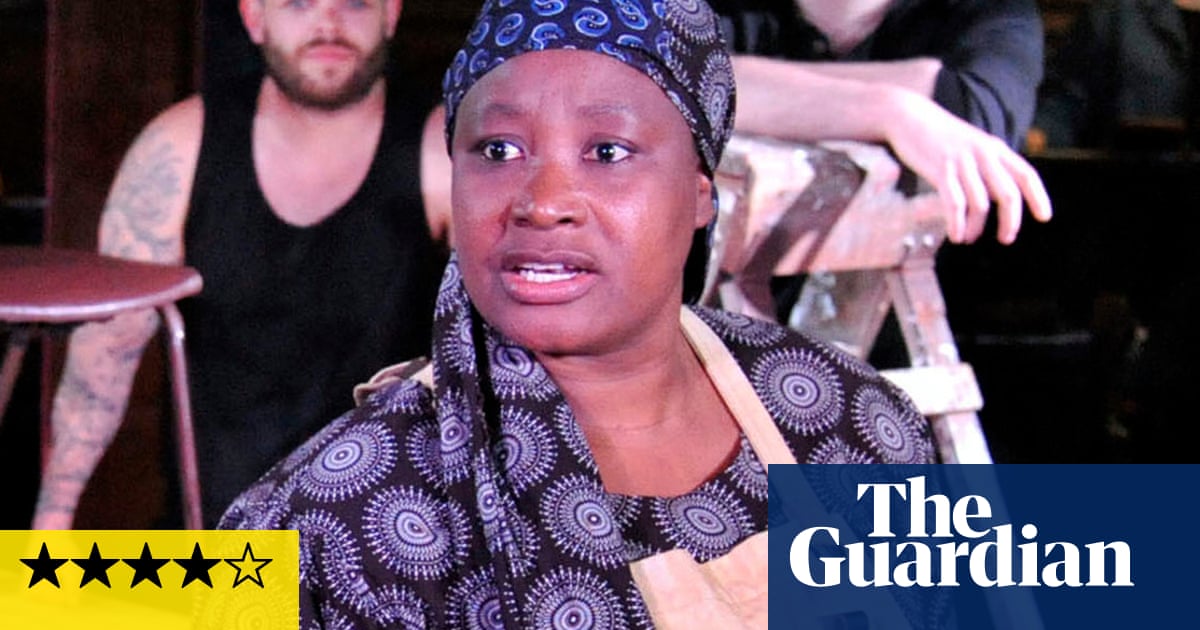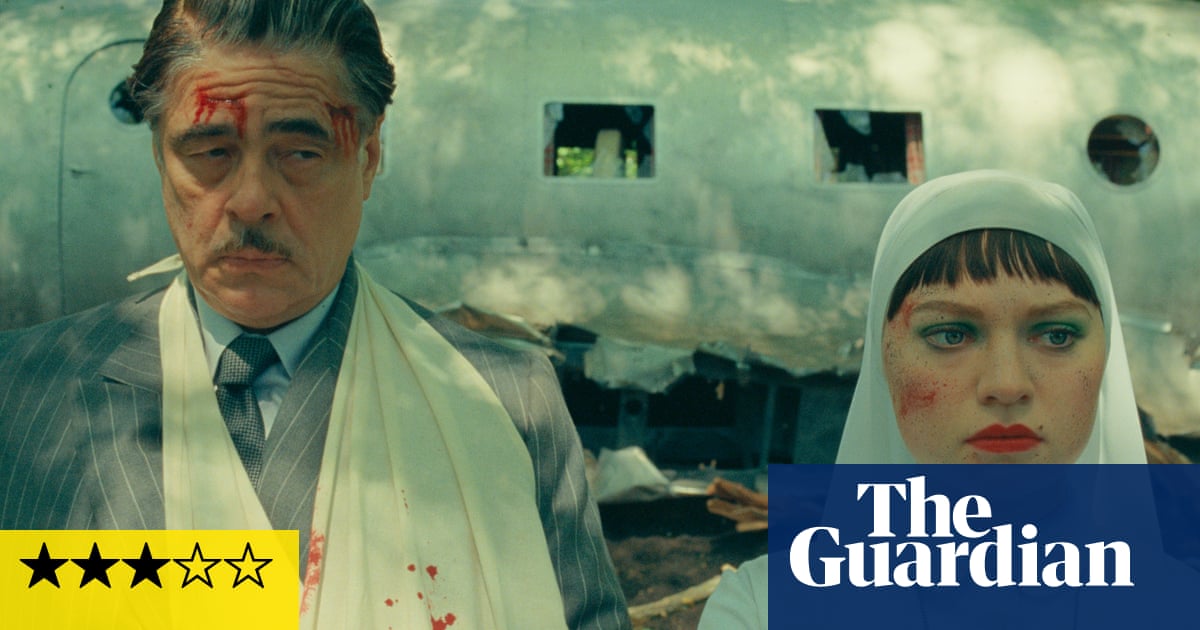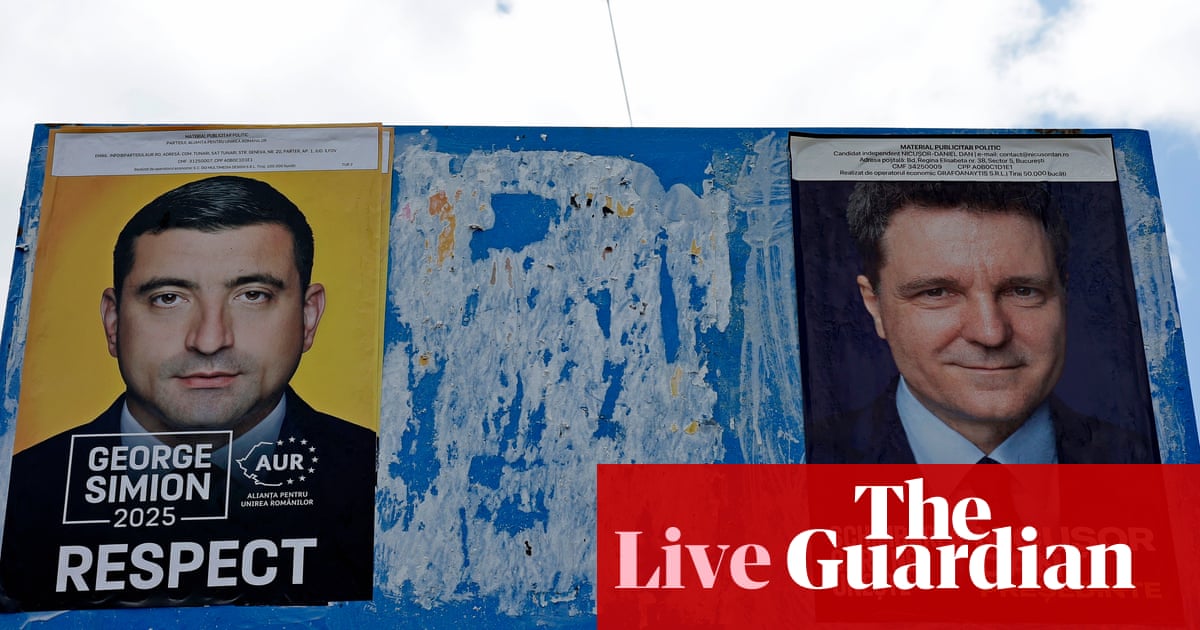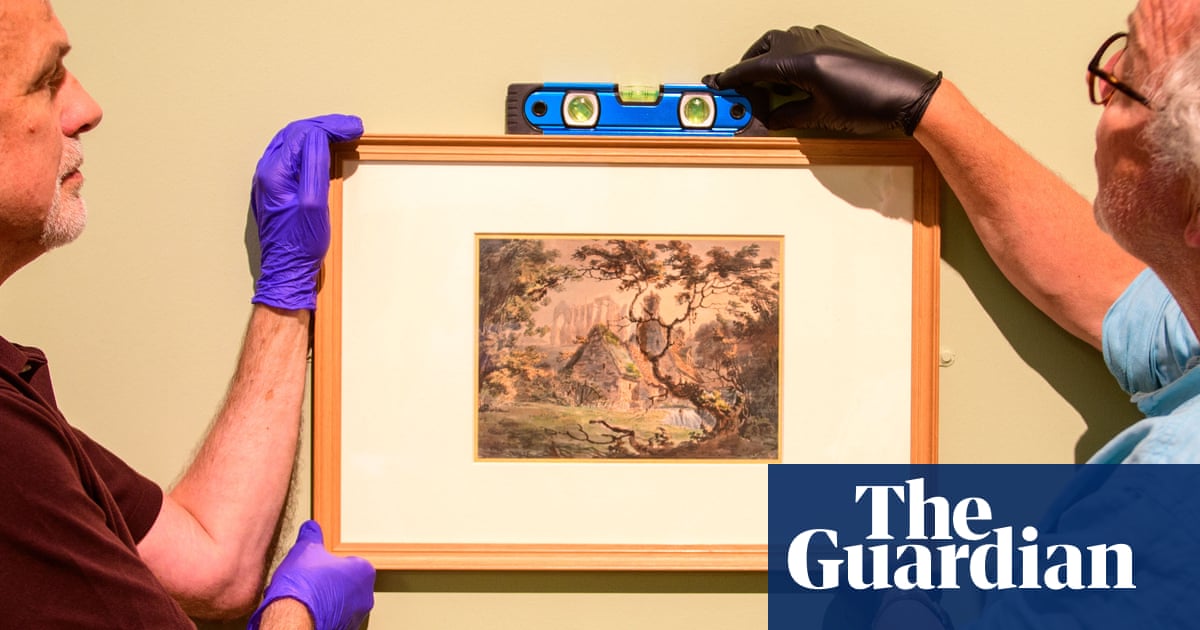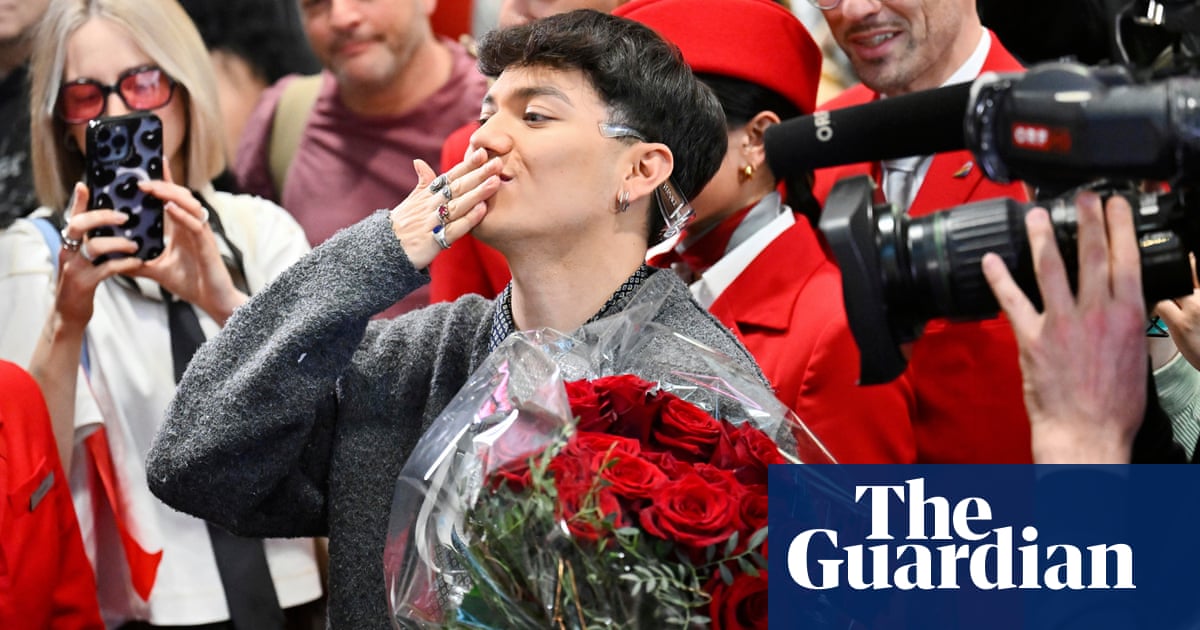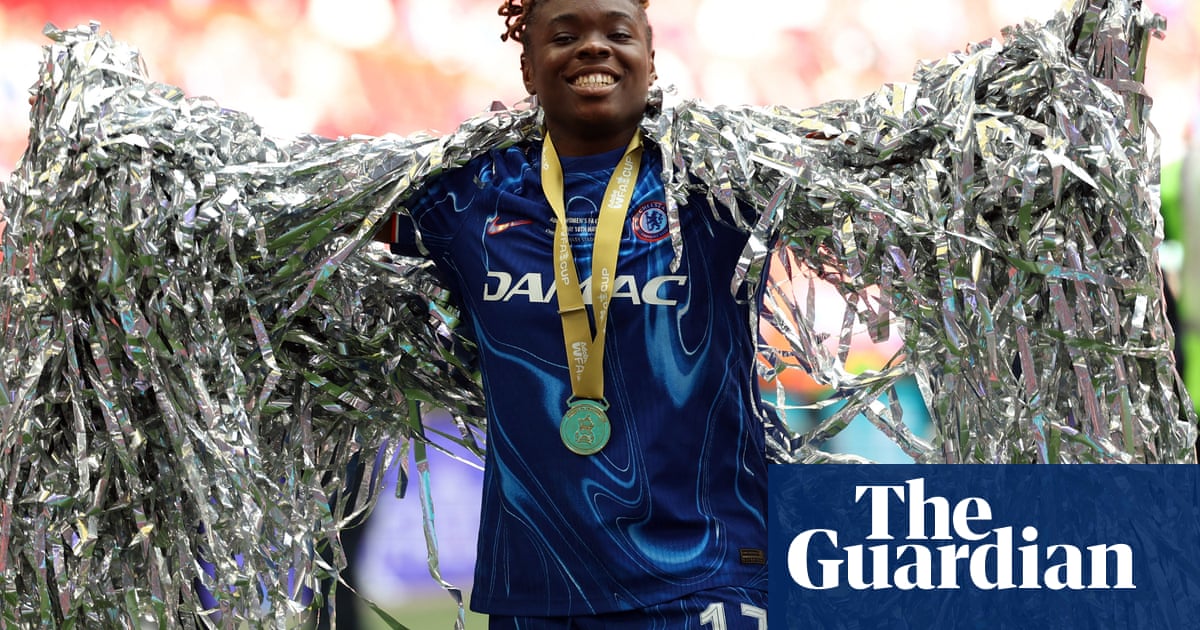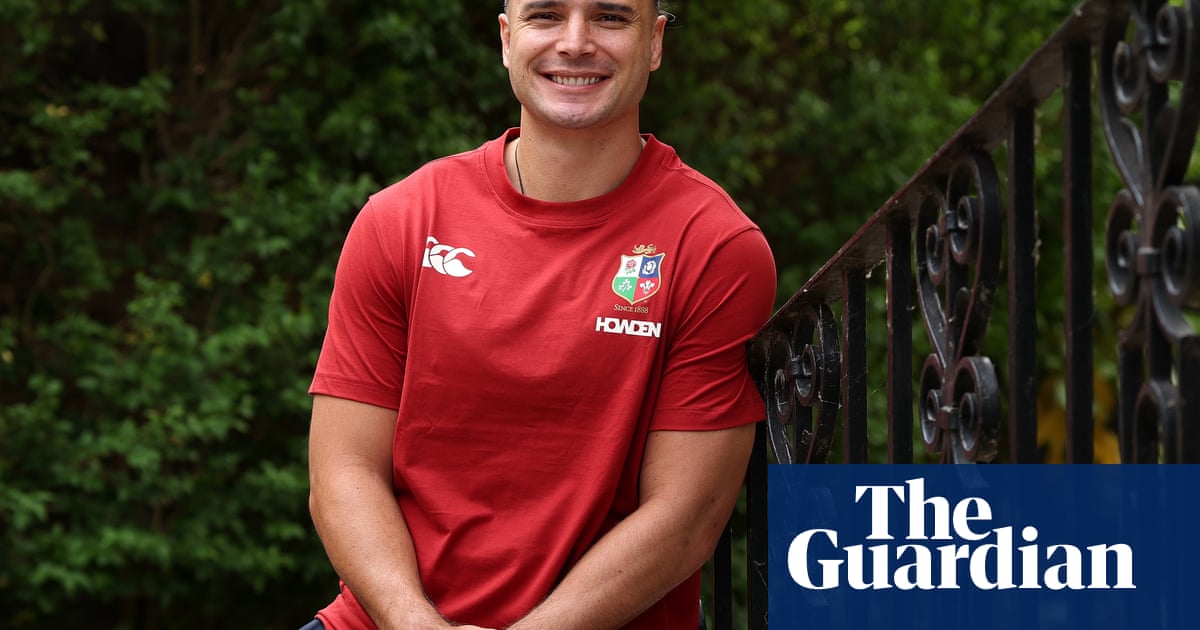Even before Monty Python clip-clopped two coconuts together, it was never easy to put Wagner’s Parsifal, with its heady combination of Catholic religiosity and Arthurian legend, on stage. Glyndebourne’s first ever production of the opera, staged by Jetske Mijnssen, takes a dour approach, bypassing almost all the religious mysticism, and laces the rest of the story firmly into the stays of a Chekhovian family relationship drama.
Ben Baur’s sombre sets and Gideon Davey’s buttoned-up costumes place us in a Catholic community around the time of the opera’s premiere, 1882. A quote from the Cain and Abel story, projected during the orchestral prelude, sets the tone. Mijnssen makes Amfortas and Klingsor into long-lost brothers, separated during a previously idyllic childhood when a fit of teenage jealousy over Kundry’s affections and his brother’s regard made Klingsor lash out with a whittling knife. We see this being acted out by the characters’ younger selves while Gurnemanz tells us the backstory in his mammoth Act 1 narration – a velvet-toned tour de force from the bass John Relyea.
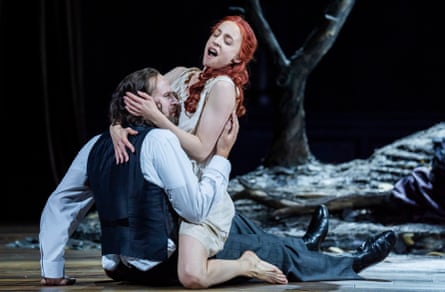
The knights seem like lesser priests, wearing surplices to take communion before beating up the outsider Parsifal. Kundry is less a wild spirit than a glorified housemaid; the holy spear is a whittling knife, the grail an ordinary chalice – and, as much as the physical hole in his side, Amfortas’s rift with his brother is the real wound that refuses to heal. Parsifal’s dawning understanding of all this, helped by the vision of his dead mother that Kundry conjures for him, is what passes for heroism here.
So there’s no faith in this production, and little magic too, save for the inspired touch of having Klingsor’s flower maidens as a sinister multitude of Kundrys. It’s no longer an opera about redemption – a big, abstract concept – but one about reconciliation, and that’s somehow a more slender story than the one Wagner wrote four hours of music for.
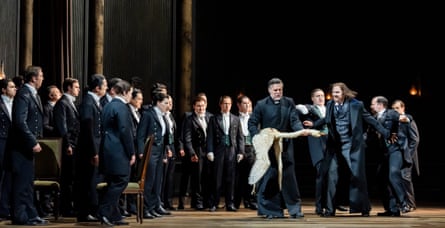
And yet the production is redeemed by the fact that those hours of listening are so well spent. The conductor Robin Ticciati elicits a gleaming, flowing orchestral performance from the London Philharmonic, one that is supportive of an excellent cast – and hearing them in such an intimate theatre as this is special. Relyea’s tireless Gurnemanz is the outstanding performance, but Audun Iversen’s Amfortas is profoundly affecting too, alongside Kristina Stanek’s rich-toned, lithe-voiced Kundry, Ryan Speedo Green’s energised Klingsor and Daniel Johansson’s innocent but incisive Parsifal. John Tomlinson is as magnetic as ever as Titurel, a major figure in this production – he’s on stage for 80 minutes before he sings a word, and he’s riveting.
Would Wagner have recognised this as his Parsifal? Maybe not. But it’s moving on its own terms, and it sounds wonderful.

 6 hours ago
10
6 hours ago
10
